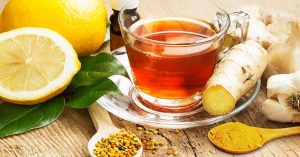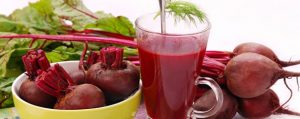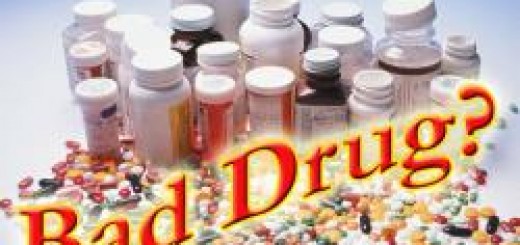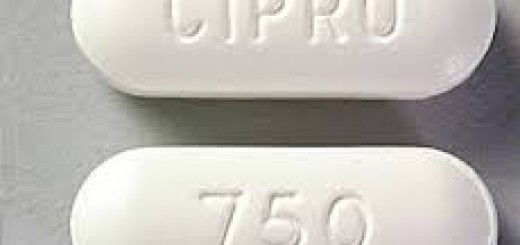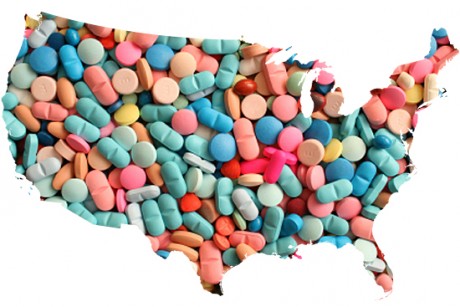Researchers: Medical errors now third leading cause of death in United States

3 John 1:2
Beloved, I wish above all things that thou mayest prosper and be in health, even as thy soul prospereth.
For anyone first reading the Health and Nutrition Update, please read this first: Your Health.
Also, please go to God’s Health System and subscribe to receive the updates.
Always remember that you are in charge of your health and not the doctors (Babylonians). Please do not put your life in their hands without first seeking God and His health system.
Commentary
The goal of this blog now is to build up your health and especially the immune system to withstand the coming pestilences that are now rampant in America and the world. God gave the knowledge to prepare for pestilences, so take advantage of this information. The focus is posting articles with great information that can immediately help your health and quality of life.
God bless you.
Articles
Babylonian Health System
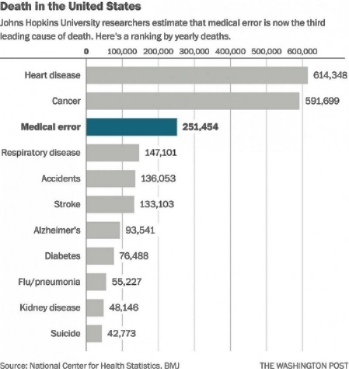 Researchers: Medical errors now third leading cause of death in United States This is what we mean when we refer to the Babylonian health system. It’s why we warn against putting your life and health completely into someone else’s hands, even if that someone is a physician. You need to know as much as you can and make informed decisions because it’s your life on the line.
Researchers: Medical errors now third leading cause of death in United States This is what we mean when we refer to the Babylonian health system. It’s why we warn against putting your life and health completely into someone else’s hands, even if that someone is a physician. You need to know as much as you can and make informed decisions because it’s your life on the line.
“Nightmare stories of nurses giving potent drugs meant for one patient to another and surgeons removing the wrong body parts have dominated recent headlines about medical care. Lest you assume those cases are the exceptions, a new study by patient safety researchers provides some context.
Their analysis, published in the BMJ on Tuesday, shows that “medical errors” in hospitals and other health care facilities are incredibly common and may now be the third leading cause of death in the United States — claiming 251,000 lives every year, more than respiratory disease, accidents, stroke and Alzheimer’s.
Martin Makary, a professor of surgery at the Johns Hopkins University School of Medicine who led the research, said in an interview that the category includes everything from bad doctors to more systemic issues such as communication breakdowns when patients are handed off from one department to another.
“It boils down to people dying from the care that they receive rather than the disease for which they are seeking care,” Makary said.
The issue of patient safety has been a hot topic in recent years, but it wasn’t always that way. In 1999, an Institute of Medicine (IOM) report calling preventable medical errors an “epidemic” shocked the medical establishment and led to significant debate about what could be done.
The IOM, based on one study, estimated deaths because of medical errors as high as 98,000 a year. Makary’s research involves a more comprehensive analysis of four large studies, including ones by the Health and Human Services Department’s Office of the Inspector General and the Agency for Healthcare Research and Quality that took place between 2000 to 2008. His calculation of 251,000 deaths equates to nearly 700 deaths a day — about 9.5 percent of all deaths annually in the United States.”
 Errors With Meds Happen in Half of All Surgeries Once again, see how dangerous it is to rely totally on the Babylonian medical system without doing your part to guard your own health.
Errors With Meds Happen in Half of All Surgeries Once again, see how dangerous it is to rely totally on the Babylonian medical system without doing your part to guard your own health.
“In past studies, doctors rarely self-reported medication errors during surgery. But a new study out of Massachusetts General Hospital, based on researcher observations during 277 procedures in the anesthesiology department, arrived at a far different conclusion: that about half of all surgeries involve a medication error or “adverse” drug event, Bloomberg reports. Coming in Anesthesiology, the study also noted that surgeries lasting more than six hours were found to result in more errors than shorter operations. What’s behind the high rate of surgery drug errors? Seems it’s the hectic nature of OR procedures, which give doctors less time to make checks and balances—unlike drugs administered at other times that get double-checked before the patient takes them.
“In the operating room, things happen very rapidly, and patients’ conditions change quickly, so we don’t have time to go through that whole process, which can take hours,” says anesthesiologist Karen Nanji, one of the study’s lead authors.”
Heart Health
“The bond between man and dog is so strong that their hearts beat in sync, a study has found. Australian researchers separated three dogs from their owners, strapped heart monitors on the people and animals and then watched what happened when they were reunited.
Doggy and human heart rates quickly fell – and then began to mirror each other. Charts showed that despite beating at different rates, they followed the same pattern, with each dog’s heart rising and falling in tandem with its master’s
‘This kind of effect of experiencing a lowered heart rate makes a significant difference to our overall wellbeing…‘If we can decrease our heart rate by hanging out with our animals, that’s something that can really benefit the community.’
Colleague Dr Craig Duncan, said: ‘Stress is a major killer in today’s society and, as we get busier and busier, it is something that is really important for us to try to help with.
‘The Hearts Aligned project aims to show how pet ownership can help us positively deal with the stressors of everyday life…’For instance, a review of research by the American Heart Association suggested that pet owners have healthier hearts than other people – and dog owners particularly benefit…
Dogs have also been found to help keep loneliness at bay and may even guard against glaucoma, one of the most common causes of blindness.”
Gut Flora
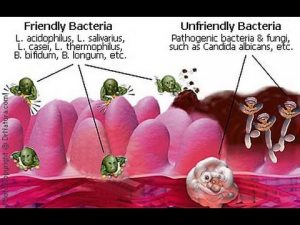 Lifestyle has a strong impact on intestinal bacteria, which has a strong impact on health
Lifestyle has a strong impact on intestinal bacteria, which has a strong impact on health
“Everything you eat or drink affects your intestinal bacteria, and is likely to have an impact on your health. That is the finding of a large-scale study…into the effect of food and medicine on the bacterial diversity in the human gut, which is published this Friday in the research journal Science…
This DNA analysis made it possible to examine which factors impact the diversity of the microbiome (the intestinal bacterial community unique to each of us). And that appears to be many. Wijmenga says, “You see, for example, the effect of diet in the gut.” People who regularly consume yogurt or buttermilk have a greater diversity of gut bacteria. Coffee and wine can increase the diversity as well, while whole milk or a high-calorie diet can decrease it.
Beyond diet, at least 19 different kinds of medicine — some of which are widely used -have an impact on microbiome diversity. An earlier study by Groningen researchers has shown that antacids decrease this diversity, while antibiotics and the diabetes drug metformin also have an effect. These are important findings Wijmenga stresses, “Disease often occurs as the result of many factors. Most of these factors, like your genes or your age, are not things you can change. But you can change the diversity of your microbiome through adapting your diet or medication. When we understand how this works, it will open up new possibilities.”
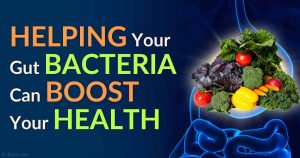 Gut feeling: Research examines link between stomach bacteria, PTSD
Gut feeling: Research examines link between stomach bacteria, PTSD
“Could bacteria in your gut be used to cure or prevent neurological conditions such as post-traumatic stress disorder (PTSD), anxiety or even depression? Two researchers sponsored by the Office of Naval Research (ONR) think that’s a strong possibility.
Dr. John Bienenstock and Dr. Paul Forsythe–who work in The Brain-Body Institute at McMaster University in Ontario, Canada–are investigating intestinal bacteria and their effect on the human brain and mood.
“This is extremely important work for U.S. warfighters because it suggests that gut microbes play a strong role in the body’s response to stressful situations, as well as in who might be susceptible to conditions like PTSD…”
The trillions of microbes in the intestinal tract, collectively known as the gut microbiome, profoundly impact human biology–digesting food, regulating the immune system and even transmitting signals to the brain that alter mood and behavior. ONR is supporting research that’s anticipated to increase warfighters’ mental and physical resilience in situations involving dietary changes, sleep loss or disrupted circadian rhythms from shifting time zones or living in submarines.”
Vitamin D
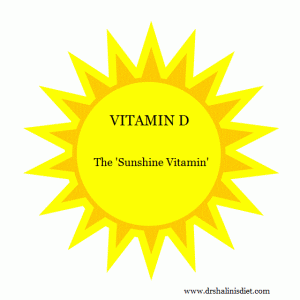 New study finds vitamin D supplementation during pregnancy helps reduce childhood allergies
New study finds vitamin D supplementation during pregnancy helps reduce childhood allergies
“A recent clinical trial concluded that vitamin D supplementation during pregnancy and infancy may prevent allergies. In addition, the researchers found that vitamin D supplementation reduced the proportion of children who made trips to the doctor for asthma.”
Vitamin D helps reduce childhood allergy rate While this study was done in New Zealand, it seems reasonable that the information would apply everywhere, and with rising rates of allergy and asthma in all children, this could be crucial information for anyone having a family.
“Vitamin D supplements during pregnancy and infancy may help to reduce New Zealand’s high childhood allergy rate.
In a study, published today in the internationally ranked journal Allergy, Associate Professor Cameron Grant…showed for the first time, that vitamin D supplements prevent allergy sensitisation to house dust mites in children. He believes vitamin D supplements may also help prevent asthma developing in young children.
The study report notes that in New Zealand there is a sun-avoidance public health policy, our diet has a low vitamin D content and vitamin D supplements are not widely used. Vitamin D deficiency is prevalent with 57 percent of New Zealand newborns having low concentrations of vitamin D at birth.
Both asthma and allergies are highly prevalent in New Zealand with 25 percent of six to seven year olds reported with asthma and 35 percent of 11 to 12 year olds having an allergic response to house dust mite, plant, food or other allergens.
“In our clinical trial of vitamin D supplementation during pregnancy and infancy, we showed that when these supplements were started in the mum at 27 weeks gestation and then continued in her child until the child was six months old, they prevented sensitisation of the child to house dust mites (measured when the child was 18 months old),” says Dr. Grant.
“Based upon a careful review of the records of the children’s visits to their family doctor, we also saw that this vitamin D supplementation reduced the proportion of children making primary care visits which their family doctor thought were due to asthma,” he says.”
Vitamin D/ Cancer News/ Immune System
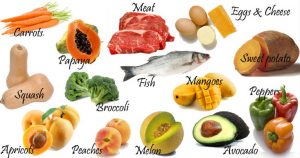 How Vitamin D Strengthens Your Immune System against Cancer
How Vitamin D Strengthens Your Immune System against Cancer
“Vitamin D is the sort of vitamin that gets neglected more often than not. People will just assume that they’re getting enough vitamin D if they’re out in the sun often enough, since vitamin D is produced as a chemical reaction between the skin and the sun. Other people won’t think about it at all, and they focus on the vitamins that get publicized more often.
However, vitamin D is a nutrient that has tremendous implications for the prevention of cancer, particularly with regards to lung cancer, colon cancer and colorectal cancer in general.
Scientists finally understand the role of the immune system and cancer. Cancer prevention is complicated at the best of times, given the number of cancers that have genetic factors and the number of cancers that can be triggered by exposure to environmental stimuli.
However, people with strong immune systems are less likely to get cancer, and the immune system in general is a valuable tool against all sorts of bodily infiltrators, and that includes cancer.”
Cancer News/ Health and Nutrition/ Heart Health
A Tea That Fights Inflammation and Cancer
“Countless medical studies have reaffirmed the anti-inflammatory and anti-cancer benefits of tumeric, an ancient root long prized for its healing properties. Tumeric is used as a spice in cooking, particularly in Indian dishes. However, health experts suggest you use tumeric frequently, and drinking tumeric tea is an efficient way to increase your consumption.
Tumeric is traditionally used in Chinese and Indian folk medicine, as it treats a wide variety of illnesses. Its effectiveness may be attributed to its powerful anti-inflammatory and antiseptic properties. We now understand that chronic, low-level inflammation is at work in almost Western disease, including heart disease, cancer, metabolic syndrome, Alzheimer’s disease, and other degenerative diseases.
Curcumin is an active ingredient in tumeric. According to an article published on the neurology website of University of California Los Angeles:
Curcumin, is an anti-inflammatory molecule in the turmeric root, a relative of ginger. Turmeric has been used for thousands of years as a medicinal preparation and a preservative and coloring agent in foods. Curcumin was isolated as the major yellow pigment in turmeric; chemically diferulomethane, and has a polyphenolic molecular structure similar to other plant pigments (eg. extracted from grapes in wine (resveratrol), or in green tea (catechins) or in certain fruit juices (blueberries, strawberries, pomegranates etc.) This polyphenols share in common anti-oxidant and anti-inflammatory properties with associated health benefits.
In terms of heart disease, curcumin reduces inflammation and thus improves the function of the endothelium, the lining of the blood vessels. Tumeric is also known to be an anti-diabetic and antioxidant, particularly in type-1 diabetes. It improves the metabolic functioning and reduces the risk of plaque buildup in the arteries of type-2 diabetes patients.
Ingredients:
1 tea bag of green tea
2 cups filtered water
1/2 tablespoon of grated fresh turmeric or 1/2 teaspoon dried turmeric”
Check the article for specific directions, if needed.
“A new study has emerged that may give hope to those who may see themselves as the proverbial “90-pound weakling.” Surprisingly, the remedy can be found in the garden.
The study, recently conducted at the Washington School of Medicine in St. Louis, is one of several university trials revealing that a small amount of beet juice is all it takes to beef up your exercise performance and endurance.
The researchers found nine heart failure subjects who experienced the typical symptoms — loss of skeletal muscle strength, reduced ability to exercise and even evidence that quality of life was suffering. Each individual exhibited measurable improvement.
The patients were given 140 milliliters — about two-thirds of a cup — of concentrated beet juice, followed by testing, which found an almost instantaneous increase in their muscle capacity by an average of 13 percent. The study was published in the journal Circulation: Heart Failure in September 2015.1″
 Eating chocolate each day could reduce heart disease, diabetes risk
Eating chocolate each day could reduce heart disease, diabetes risk
“A new study published in the British Journal of Nutrition appears to back up the adage that a little of what you fancy does you good.
Including a small amount of chocolate each day could help prevent diabetes and insulin resistance.
The academics hypothesised that chocolate consumption may have a beneficial effect on insulin sensitivity and liver enzymes and therefore decided to analyse a national sample of adults, taking into account lifestyle and dietary factors, including the simultaneous consumption of tea and coffee. This is because both drinks can be high in polyphenol, the substance which may provide chocolate with its beneficial cardiometabolic effects.”
Eating dark chocolate as a daily snack could help boost athletic performance
“Dark chocolate has already been hailed for its positive effects on cardiovascular health — and now a study undertaken at London’s Kingston University has found the tasty treat could help give sports enthusiasts an extra edge in their fitness training.
A team led by postgraduate research student Rishikesh Kankesh Patel discovered that dark chocolate provides similar benefits to beetroot juice, now taken regularly by elite athletes after studies showed it can improve performance. “Beetroot juice is rich in nitrates, which are converted to nitric oxide in the body. This dilates blood vessels and reduces oxygen consumption — allowing athletes to go further for longer,” Mr Patel explained.
The team from the British university wanted to find out whether dark chocolate could provide a similar boost, as it contains a substance called epicatechin — a type of flavanol found in the cacao bean, that also increases nitric oxide production in the body.”
Pet Health
Why Does My Dog Eat Grass? This is an interesting article on the AKC website. At the bottom of the page there’s also a free downloadable e-book, “Why Does My Dog Do That?”which gives “the explanations behind some of the strangest canine behaviors.”
“The fact is that even if your dog has a well-balanced diet, she may still go for the green stuff on a regular basis. And studies have shown that most types of grasses will not make dogs throw up. So the idea that dogs eat grass because they are missing something in their diet does not stand up to scrutiny. (Though grass does contain essential nutrients that a dog might crave anyway.) There has also been no hard science proving that eating grass is linked to vomiting. That said, the ingestion of grass does make some dogs vomit, but it’s unclear if it was the grass that gave the dog the upset stomach to begin with.
Whether they scarf it up by the mouthful or daintily nibble just a few blades, the answer may be simple: They just like the way it tastes. Remember, dogs enjoy all sorts of things that disgust the human palate—dirty socks and gristle from the trash can, anyone?
Despite the lack of solid evidence that grass-eating is directly related to a dog self-curing, Petmd.com says that it does seem like dogs will seek out a natural remedy for a gassy or upset stomach, and grass may do the trick: “When ingested, the grass blade tickles the throat and stomach lining; this sensation, in turn, may cause the dog to vomit, especially if the grass is gulped down rather than chewed…”
Most experts say that letting your dog eat grass poses no real risk. But do keep an eye on it, especially if there is a sudden increase in grass eating; it could be a sign of an underlying illness. And always monitor a teething puppy, because ingesting a lot leaves, grass, and sticks can lead to a blockage…
You may also want to buy a small tray of grass just for your dog, or start an herbal home garden. This will give your pooch an alternative to eating the outdoor grass and landscaping, which could lead to accidental ingestion of pesticides, herbicides, or chemicals that have been used to treat your yard.”

John John visits the new pet relief area at New York’s JFK airport before he and his owner Taylor Robbins head home on a flight to Atlanta.
“New York’s John F. Kennedy International Airport is going to the dogs – and cats – as it opens its ‘pet relief facilities’. The 70-square-foot room, at JFK’s sprawling Terminal Four, allows dogs and other animals to relieve themselves without needing to exit the building to find a place to go outside — a step that requires an annoying second trip through the security line.
The door is marked with a paw print between the men’s and women’s rooms and inside is some green turf and a fire hydrant. A dispenser of plastic doggie bags and a hose is provided for the owners to clean the area up for the next pet.
‘We had seen an increase of passengers traveling with pets and we decided to do it sooner rather than later,’ said Susana Cunha, vice president of the management company that operates the terminal.
Guide and service dogs, emotional support animals and other pets traveling with passengers are all welcome to use the facilities.
A federal regulation will require that all airports that service over 10,000 passengers per year install a pet relief area in every terminal by this August. Airports that already have them include Dulles International outside Washington D.C., Chicago’s O’Hare and Seattle-Tacoma International.”
Conclusion
Your physical health is very important, but of even greater importance is your spiritual health. Man suffers from a fatal spiritual disease called sin, which always leads to death.
Romans 6:23 For the wages of sin is death; but the gift of God is eternal life through Jesus Christ our Lord.
This is why Jesus Christ said we need the Spirit of God who gives us eternal life with Him. We need to be “born again” with a new spirit that is not subject to sin and death.
John 3:3 Jesus answered and said unto him, Verily, verily, I say unto thee, Except a man be born again, he cannot see the kingdom of God.
Right now, through repentance of the spiritual disease called sin, you can come to Jesus Christ, the Great Physician, for healing and assurance of eternal life.
Mark 2:17 When Jesus heard it, he saith unto them, They that are whole have no need of the physician, but they that are sick: I came not to call the righteous, but sinners to repentance.
For those who love the Lord Jesus and are looking for His coming, the following is their future:
Revelation 21:4 And God shall wipe away all tears from their eyes; and there shall be no more death, neither sorrow, nor crying, neither shall there be any more pain: for the former things are passed away.


